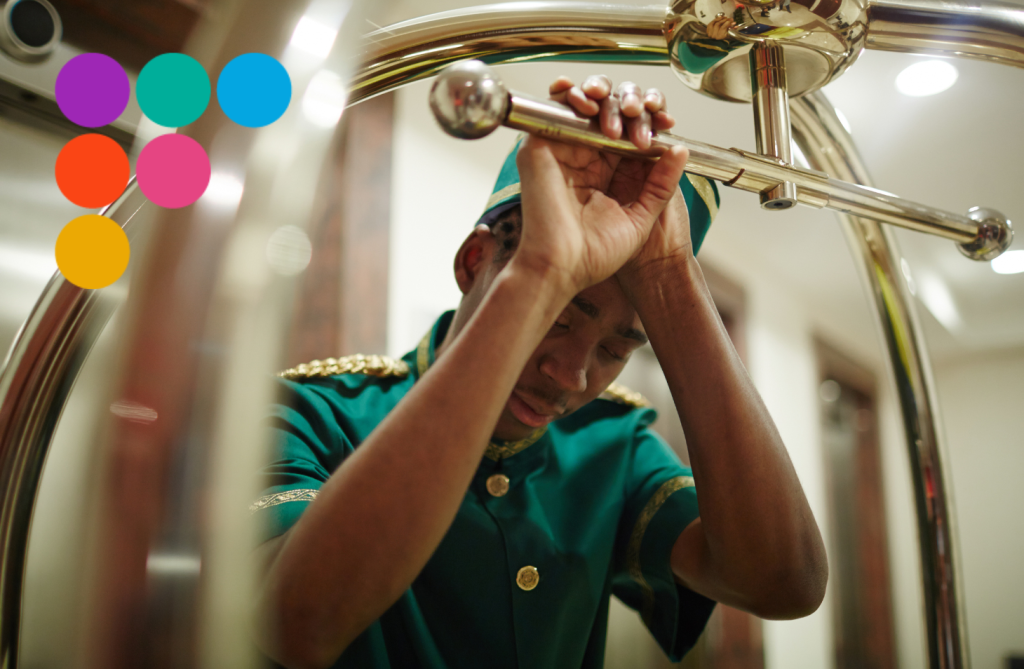How to Prevent Burnout in your Hospo Team
The hospitality industry is famously fast-paced and demanding. With long hours, irregular shifts, and high customer expectations, staff burnout is a common concern. But with the right strategies, you can support your team’s well-being, helping them maintain their energy and motivation year-round. Here are some practical approaches to preventing burnout among hospitality staff.
Optimise Scheduling to Minimise Overload
Excessive hours and unpredictable shifts are major contributors to burnout in hospitality. To combat this, prioritise optimised scheduling by balancing busy shifts among team members and rotating duties to avoid overworking specific employees. Where possible, offer flexible scheduling options that allow employees to balance their work with personal commitments.
Foster Open Communication
A culture of open communication is essential for recognising burnout before it becomes severe. Regularly check in with staff to gauge their stress levels, encourage them to share concerns, and offer a listening ear when they need it. This doesn’t have to be a formal meeting—sometimes a casual chat at the beginning or end of a shift can provide valuable insights.
Establishing open lines of communication also helps your team feel valued and heard, which can enhance morale and job satisfaction.
Encourage Rest and Recovery
Breaks can be rare in the hospitality world, but making them a priority can have a big impact on energy and well-being. Ensure employees have access to a dedicated break area where they can unwind. Encourage short, frequent breaks for stretching, drinking water, or grabbing a quick snack, which can improve focus and reduce stress throughout the day.
Additionally, emphasise the importance of days off for recovery, and avoid scheduling staff for long back-to-back shifts whenever possible. Rested employees are more energised, motivated, and less prone to errors.
Recognise Hard Work and Show Appreciation
Nothing can replace the motivation that comes from feeling genuinely valued. Take the time to acknowledge employees’ hard work—whether it’s through verbal recognition, team shout-outs, or small rewards like a coffee voucher or thank-you note. These gestures reinforce that their efforts are seen and appreciated, which can improve morale and help prevent burnout.
Consider implementing an employee recognition program with rewards for milestones, positive customer feedback, or simply for going above and beyond. This recognition creates a culture of appreciation, motivating staff to keep delivering excellent service.
Promote Team Building and Camaraderie
The best work environments are those where team members feel connected and supported. Encourage camaraderie by organising team-building activities, whether it’s a staff meal, a fun outing, or a simple after-hours gathering. These moments can help staff bond, reducing the isolation that can lead to burnout.
A team that enjoys working together is more likely to support each other during busy shifts, making the work environment feel lighter and more enjoyable.
Provide Resources for Managing Stress
Investing in resources for stress management is a proactive way to prevent burnout. Consider providing access to well-being programs or mental health resources, such as an Employee Assistance Program (EAP), which can offer confidential support and guidance. Even smaller initiatives—like sharing mindfulness apps, offering meditation sessions, or providing free access to relaxation podcasts—can make a difference.
Many employees in hospitality may not have experience with formal stress management techniques, so offering guidance or training in this area can empower them to build resilience.
Foster a Healthy Work-Life Balance
Encouraging a healthy work-life balance isn’t always easy in hospitality, but it’s essential. Encourage employees to pursue hobbies and interests outside of work, and avoid contacting them during their time off to honour that balance. If possible, establish clear boundaries around shift hours, which allows staff to fully unplug when their shift is over.
By supporting their lives outside of work, you help prevent the all-too-common pattern of burnout that comes from feeling “always on” and ready to respond
Burnout can be a costly and challenging issue for the hospitality industry, but by prioritising employee well-being, you can create a healthier, more supportive work environment. Scheduling wisely, recognising hard work, fostering communication, and supporting a work-life balance are all critical steps in keeping burnout at bay.
A motivated and energised team not only performs better but is also more likely to stick around in the long run. By implementing these strategies, you’re investing in a happier, healthier, and more sustainable workforce for your business.
Read more

